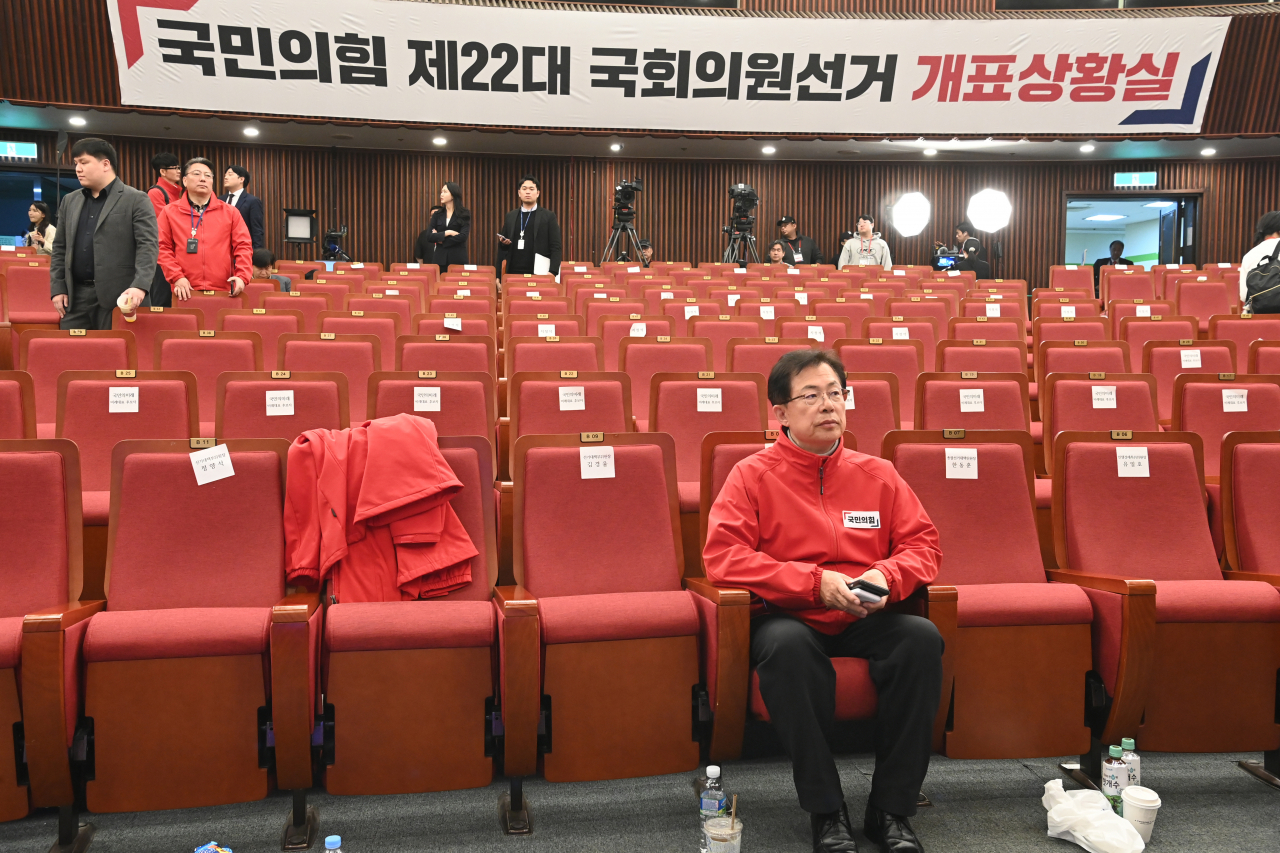What led to ruling party’s defeat?
Soaring food prices, doctors’ strike and scandals had clouded ruling party’s goals, according to observers
By Jung Min-kyungPublished : April 11, 2024 - 17:50

The ruling party’s bitter loss at Wednesday’s parliamentary elections was expected, with the majority of the voters hoping to "bring judgment" upon President Yoon Suk Yeol for failing to curb soaring food prices, end a prolonged doctors’ strike and quell a slew of scandals, critics said Thursday.
The main opposition Democratic Party and its satellite party secured a total of 175 seats, while the ruling People Power Party and its sister party only won 108 seats of the single-chamber, 300-seat National Assembly, according to the National Election Commission on Thursday. The outcome of the latest election could stagnate the current conservative administration’s push for key initiatives and make Yoon a lame duck for his remaining three years in office, observers noted.
The soaring food prices and President Yoon’s throw-away comment on the price of green onions, which voters could have interpreted as out-of-touch, was a key factor behind the ruling party’s loss, according to Kim Jung-sik, an honorary professor of economics at Yonsei University.
“A slump in the economy coupled with the pressure from the rising food prices and loan interest has affected the latest defeat of the ruling party,” Kim said.
Korea’s consumer price index, a key gauge of inflation, gained 3.1 percent on-year in March, growing over 3 percent for the second straight month, government data showed last week. It was largely driven by a jump in agricultural, livestock and fishery products, which overall gained 11.7 percent on-year in the same period. Among the products, apple prices soared 88.2 percent in the cited period, marking the sharpest growth since January 1980.
Amid public struggles stemming from inflation, Yoon visited a local grocery store on March 18, which was selling a bundle of green onions at a discounted price of 875 won ($0.65) and commented the price as “reasonable.” The comment received public flak as the market was temporarily selling them at a discounted price, backed by a government subsidy, while other major retailers were selling the same product at an average 2,500 won, one of the highest prices in recent years.
"An administration that raises taxes and interest rates rarely earns support from the public. (For the remaining three year term) the Yoon administration must come up with policies that could boost the economy (to win back public trust)," Kim explained.
The prolonged doctors’ strike and the scandal surrounding former Ambassador to Australia Lee Jong-sup also weighed on the ruling party, another critic said.
“The doctors participating in the strike as well as soldiers who were critics of ex-Defense Minister and former Ambassador to Australia Lee Jong-sup were all viewed as traditional conservative voters. Yoon and the ruling party failed to appease and lure them in the latest election,” Lee Jae-mook, a professor of political science at Hankuk University of Foreign Studies noted.
Lee Jong-sup in late March stepped down as the Ambassador to Australia, less than a month after he was appointed, following accusations that he took the post while still under investigation for allegedly delaying the investigation into the death of a young marine in July last year.
The Yoon administration has also failed to bridge the gap with the doctors protesting the state plan to boost the medical school enrollment quota by 2,000 seats to some 5,000, leading to a prolonged disruption in the country's medical and health care system. Several medical professors and more than 90 percent of the country’s 13,000 junior doctors have been on strike since Feb. 20.
The election was held amid Yoon’s plummeting popularity, as his approval rating had dropped by 18 percentage points from 52 percent in the second week of May 2022 when he first took office, to 34 percent in the fourth week of March this year, the latest Gallup Korea poll showed.





![[KH Explains] No more 'Michael' at Kakao Games](http://res.heraldm.com/phpwas/restmb_idxmake.php?idx=644&simg=/content/image/2024/04/28/20240428050183_0.jpg&u=20240428180321)





![[Grace Kao] Hybe vs. Ador: Inspiration, imitation and plagiarism](http://res.heraldm.com/phpwas/restmb_idxmake.php?idx=644&simg=/content/image/2024/04/28/20240428050220_0.jpg&u=)








